A student carries out an experiment and plots the V−I graphs of three samples of nichrome wire with resistances R1,R2andR3 respectively, (Fig. 3.41). Which of the following is true ?
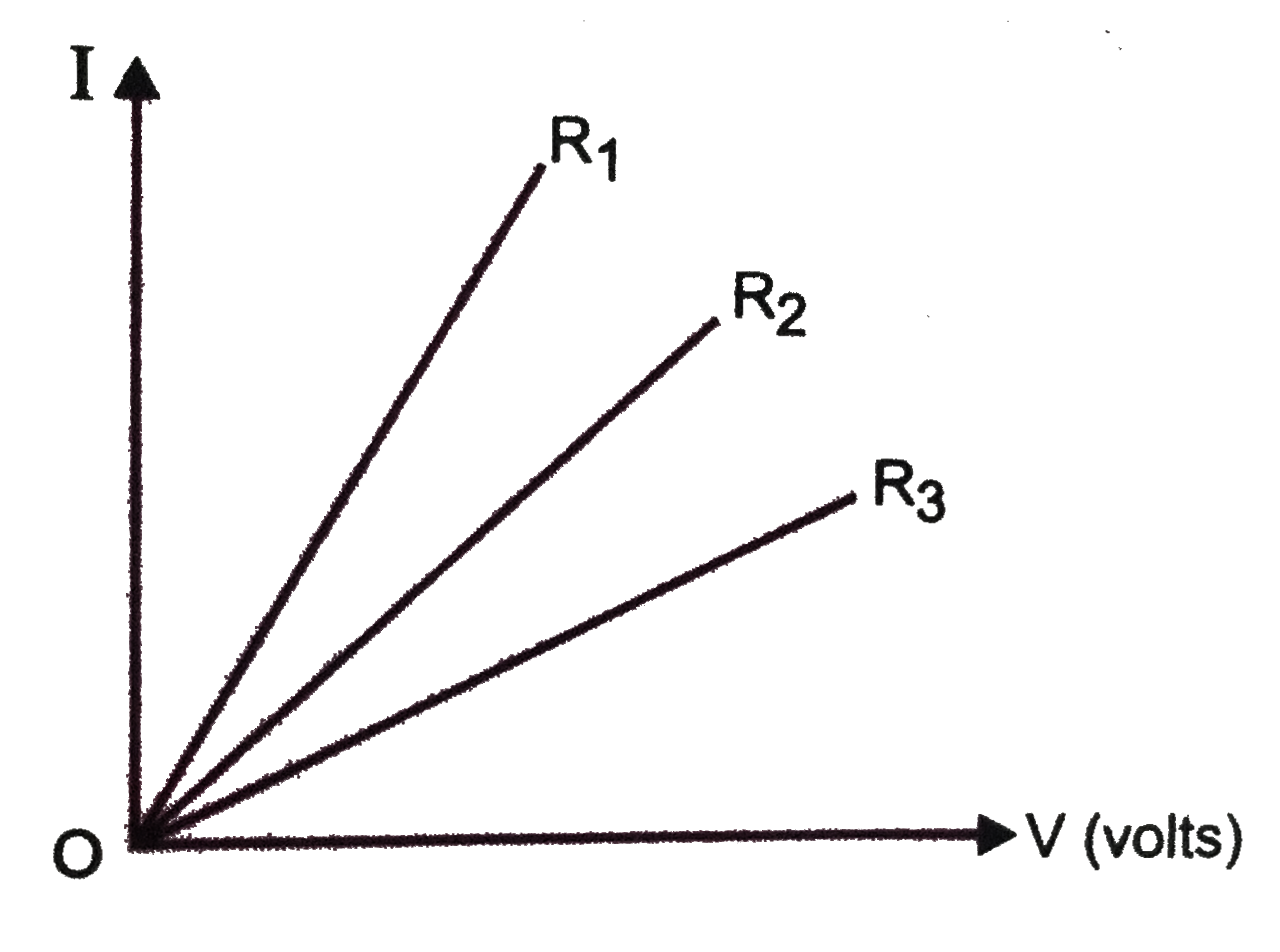
R1=R2=R3
R1>R2>R3
R3>R2>R1
R2>R3>R1
The correct Answer is:C
For a given voltage (V),I1>I2>I3. Since R=VI,R3>R2>R1.
Topper's Solved these Questions
- ELECTRICITYBOOK - PRADEEPCHAPTER - ELECTRICITYEXERCISE - (Mock Test)Sec -A
21 Videos
- ELECTRICITYBOOK - PRADEEPCHAPTER - ELECTRICITYEXERCISE - (Mock Test)Sec - B
6 Videos
- ELECTRICITYBOOK - PRADEEPCHAPTER - ELECTRICITYEXERCISE - Problem For Practice
59 Videos
- MAGNETIC EFFECTS OF ELECTRIC CURRENTBOOK - PRADEEPCHAPTER - MAGNETIC EFFECTS OF ELECTRIC CURRENTEXERCISE - Mock Test
21 Videos
Similar Questions
Three rectangles R1,R2 and R3 have the same area. Their lengths x1,x2 ahd x3 respectively are such that x1<x2<x3 If v1,v2 and v3 are the volumes of the cylinders formed from the rectangles R1,R2 and R3 respectively by joining the parallel sides along the breadth, then which one of the following is correct ?
View SolutionTwo students perform experiments on series and parallel combinations of two given resistors R1andR1 and plot the following V -1 graphs [Fig. 5.24.]. Which of the graphs is/are correctly labeled in terms of the words 'series' and 'parallel'? Justify your answer.
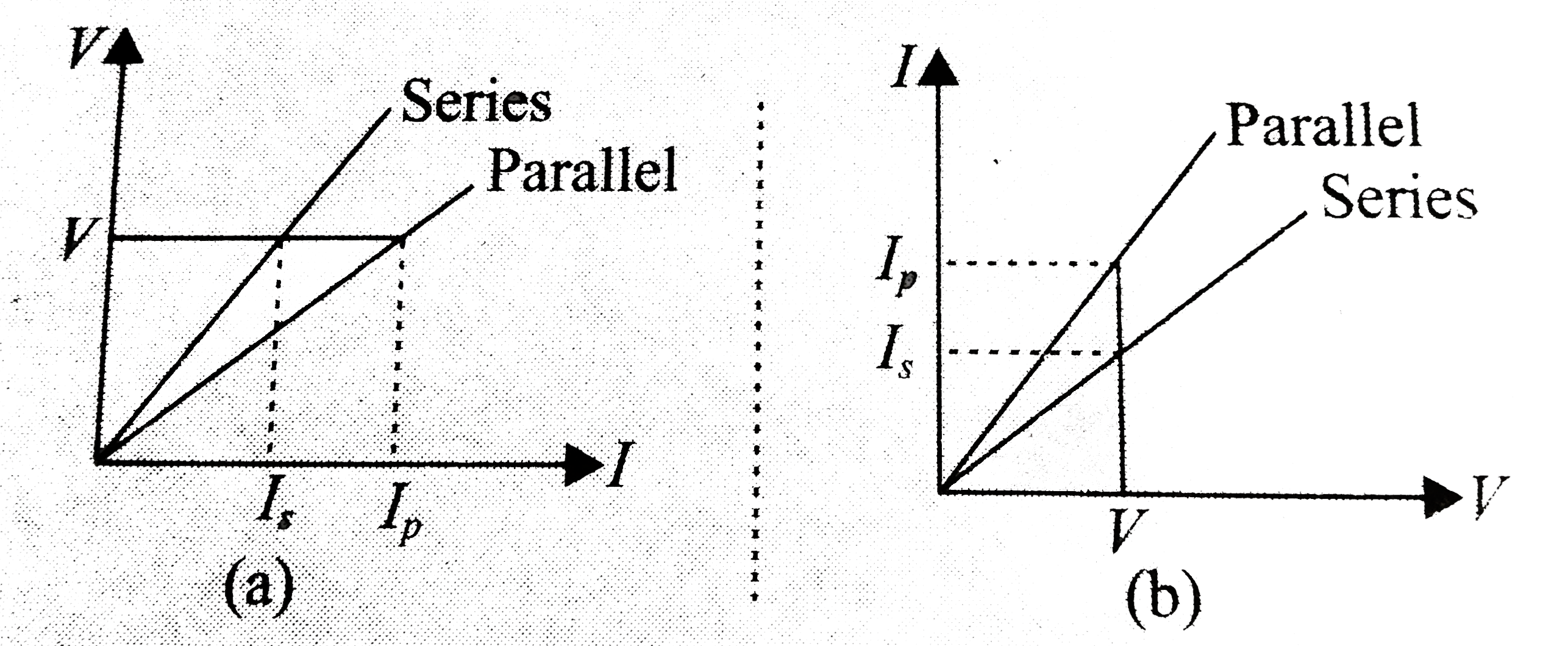
View Solution
Knowledge Check
A student plots V-I graphs for three samples of nichrome wire with resistances R1, R2 and R3.
Choose from the following the statement that holds true for this graph.
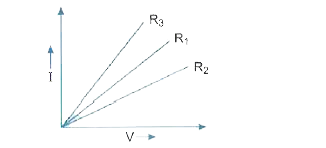 AR1=R2=R3BR1>R2>R3CR3>R2>R1DR2>R1>R3
AR1=R2=R3BR1>R2>R3CR3>R2>R1DR2>R1>R3Two Cu wires of radii R1 and R2 are such that (R1>R2) . Then which of the following is true ?
ATransverse wave travels faster in thicker wireBTransverse wave travels faster in thinner wireCTravels with the same speed in both the wiresDDoes not travelFor the batteries shown in fig. R1,R2andR3 are the internal resistance of E1,E2,andE3, respectively Then, which of the following is / are correct?
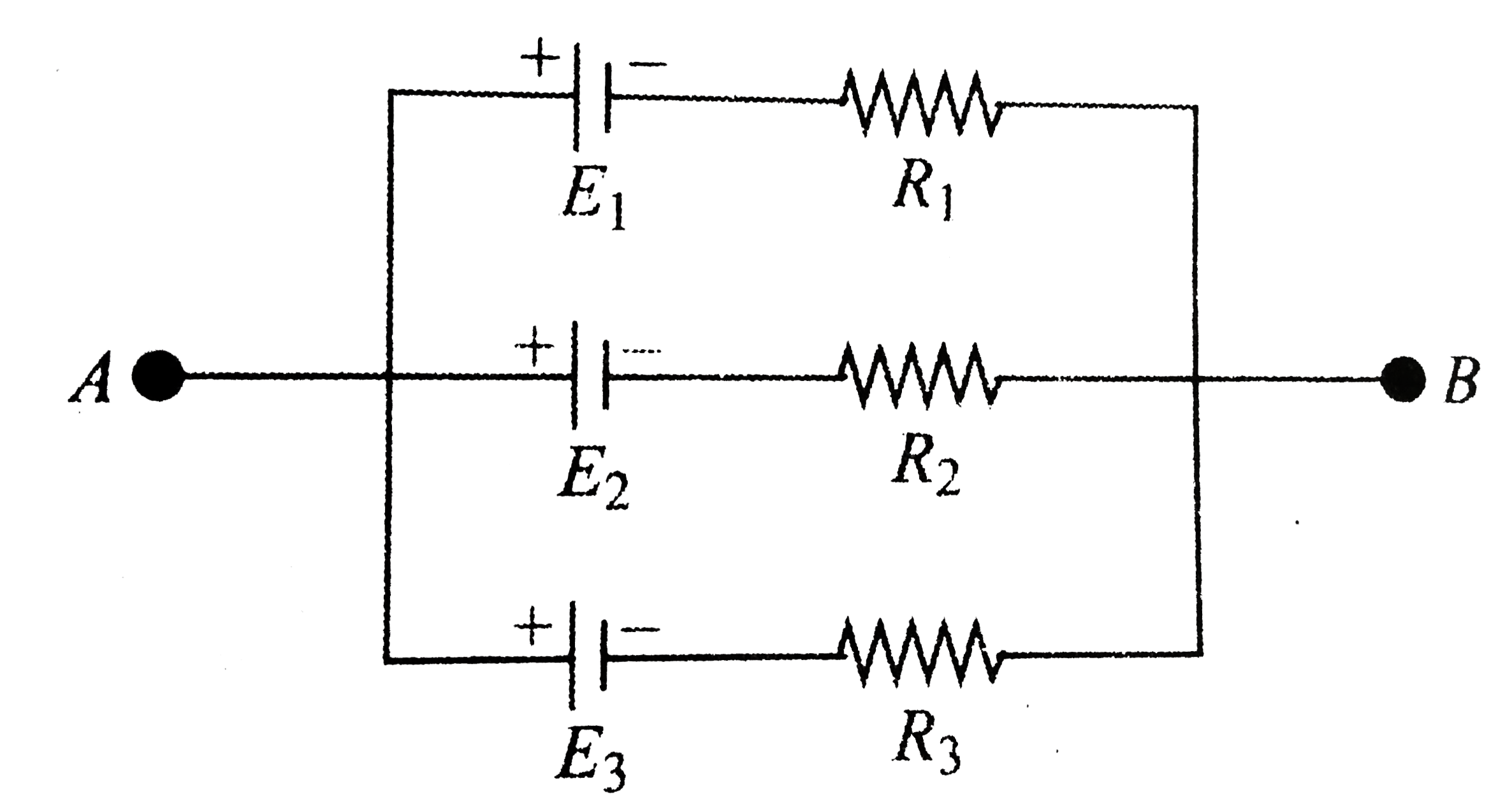 AThe equivalent internal resistance R of the system is given by (R1R2R3)/(R1R2+R2R3+R3R1).BIf E3=(E1R2+E2R1)/(R1+R2), the equivalent emf of the batteries will be equal to E3CThe equivalent emf to the battery is equal to E=(E1+E2+E3)/3DThe equivalent emf of the battery not only depends upon values of E1,E2,andE3 but also depends upon values of R1,R2andR3.
AThe equivalent internal resistance R of the system is given by (R1R2R3)/(R1R2+R2R3+R3R1).BIf E3=(E1R2+E2R1)/(R1+R2), the equivalent emf of the batteries will be equal to E3CThe equivalent emf to the battery is equal to E=(E1+E2+E3)/3DThe equivalent emf of the battery not only depends upon values of E1,E2,andE3 but also depends upon values of R1,R2andR3.
The graphs between current (1) and voltage (v) for three linear resistors 1,2 and 3 are given below:
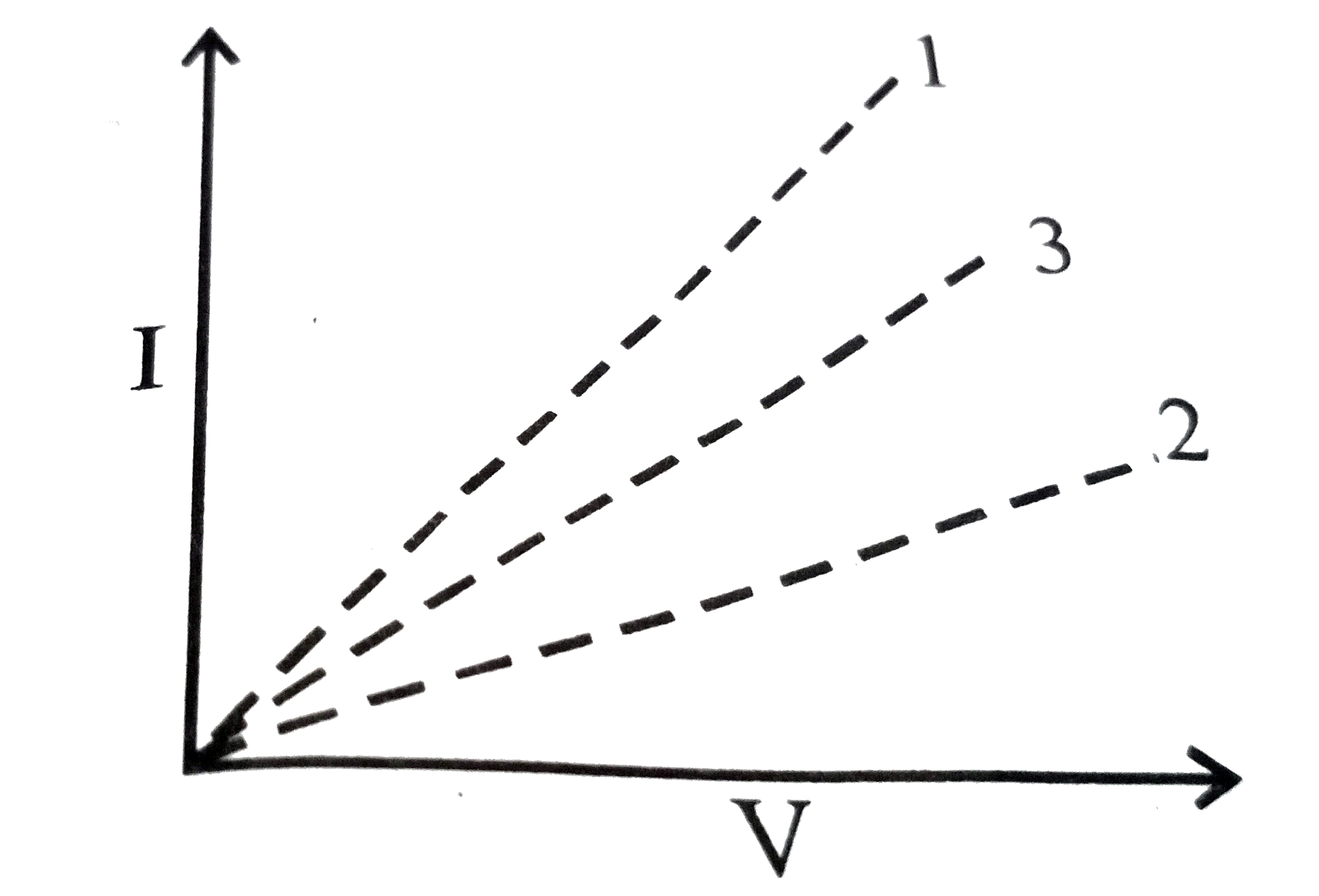
If R1,R2 and R3 are the resistances of these resistors, then which one of the following is correct?
View SolutionIn the given circuit, if I1andI2 be the current in resistances R1andR2, respectively, then
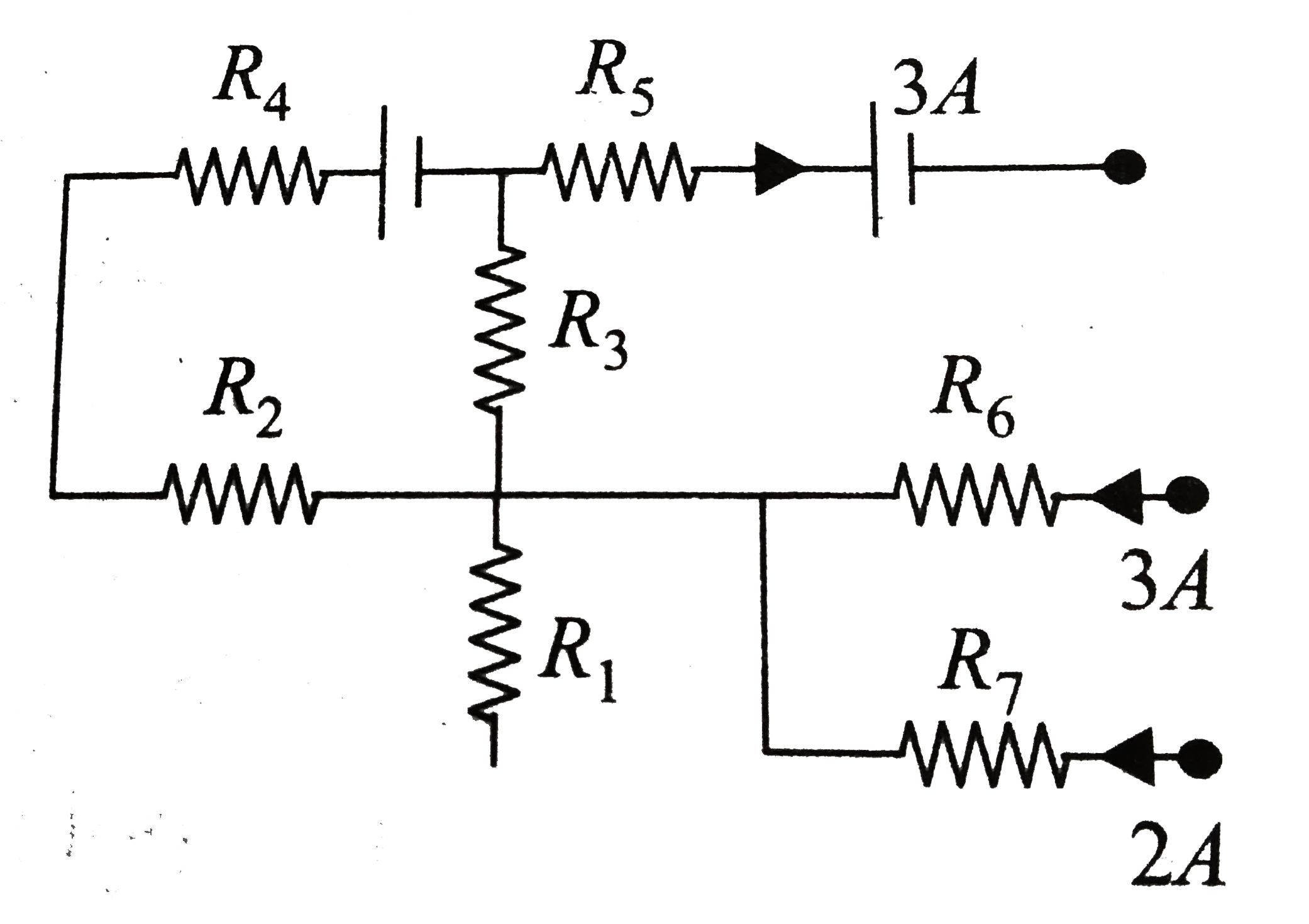 .
.
View SolutionIn the given circuit if I1 and I2 be the current in resistance R1 and R2 respectively then:
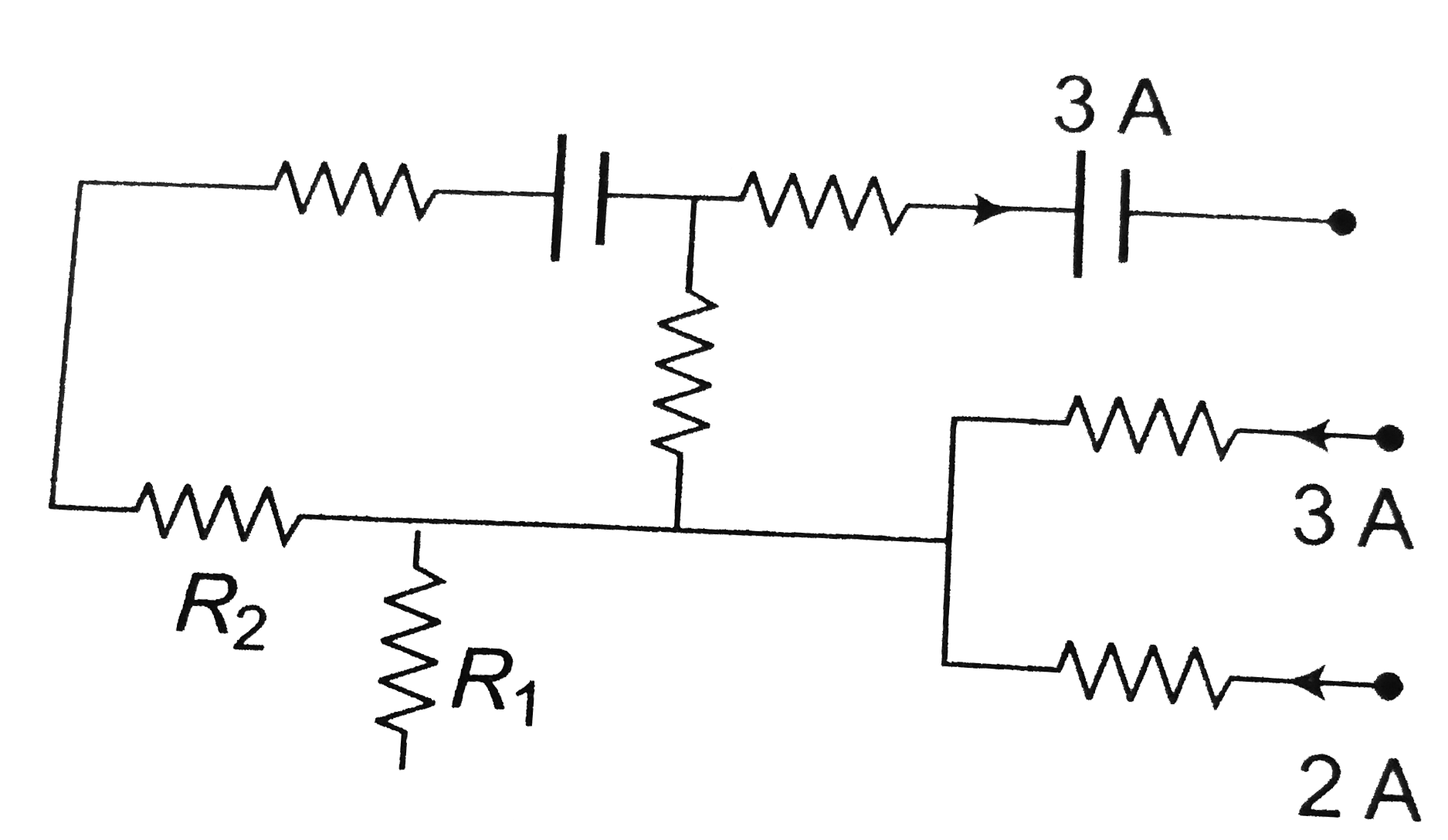
View SolutionA student carries out the experiment for studying the dependence of current (I) flowing through a resistor system of R1 and R2 on the potential difference (V) applied to it by connecting the resistor system to points X and Y of the measuring circuit as shown :
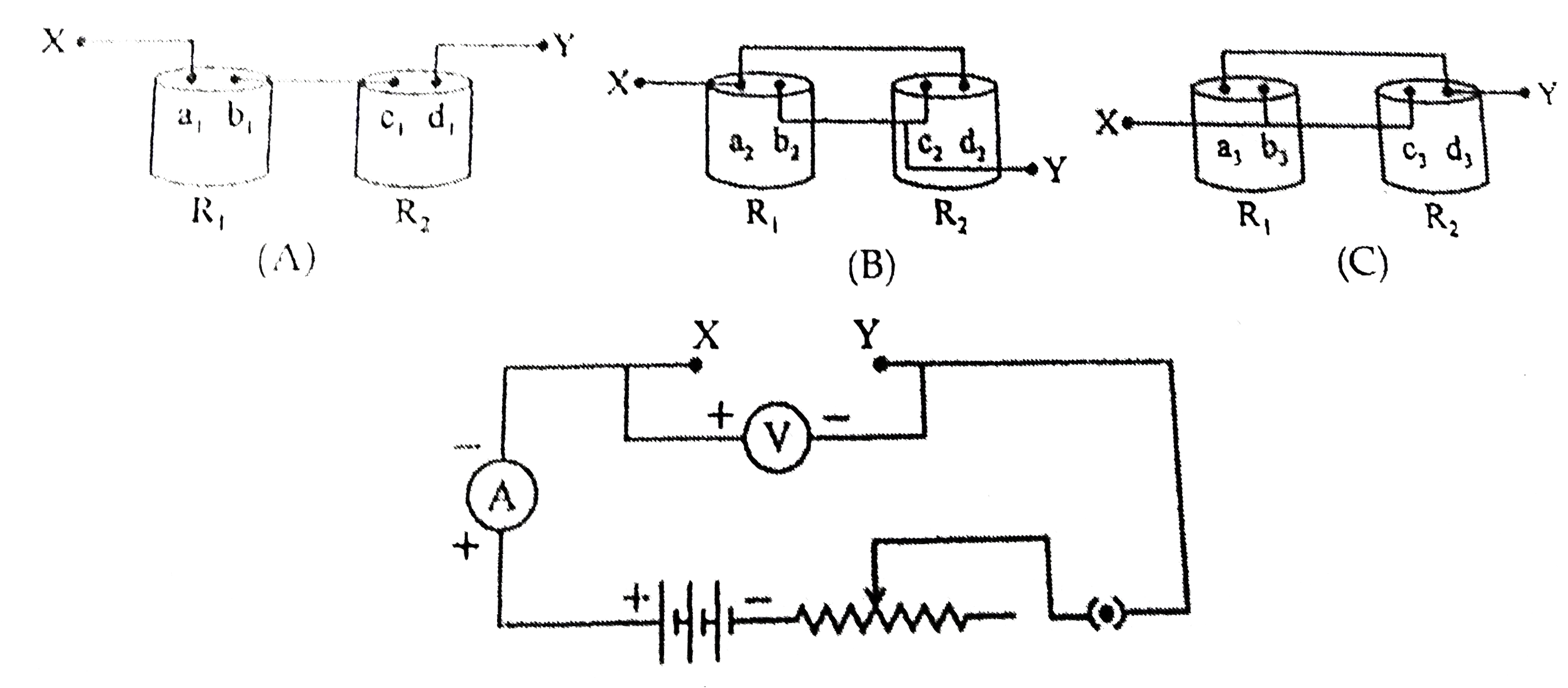
The average value of the ratio V/I, of his observations, would then be equal
View SolutionSix wires each of resistance r form a tetrahedron. The equivalent resistance between corners 1-2 and 1-3 are respectively
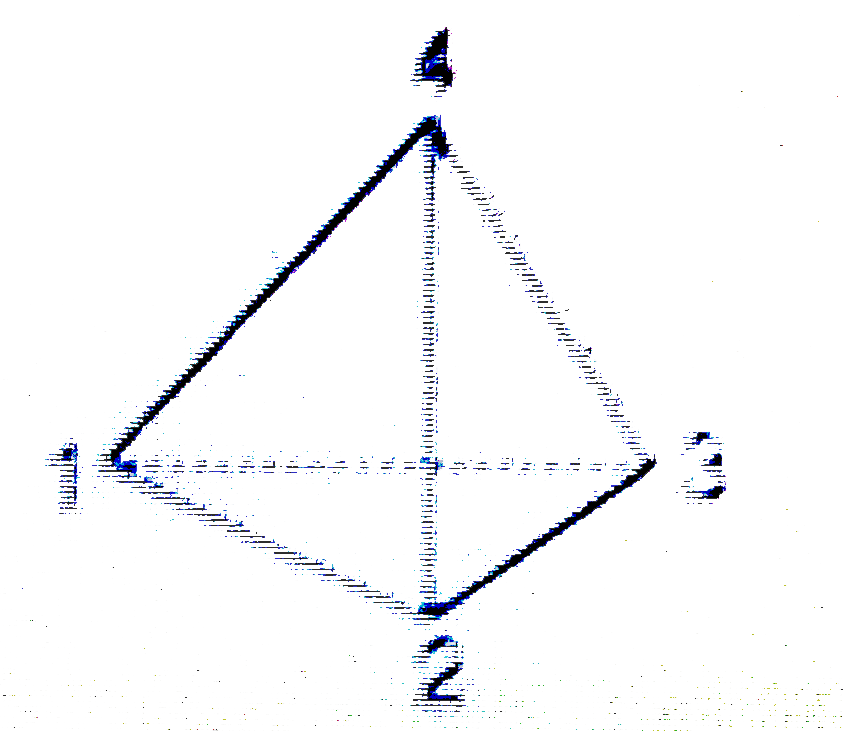
View Solution
